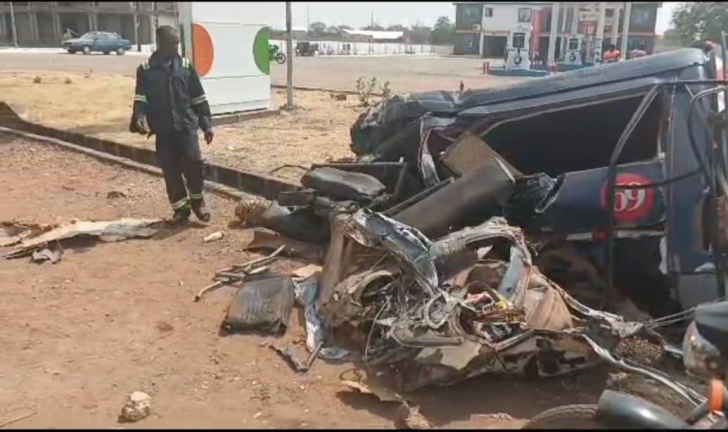ARTICLE AD
A severe storm strikes, bringing with it torrential rains, deafening thunder, and blinding lightning. The downpour is wreaking havoc on the community, with roofs being ripped off houses, streets transforming into rivers, and worst of all, people losing their lives in the raging floodwaters.
Yet another day, the sunrise brings a fleeting sense of serenity, offering a brief respite from the sweltering heat. However, this tranquility is short-lived, as the sun's intense rays soon begin to scorch the skin, penetrating deep beneath the surface.
This is the climate reality.
In Ghana today, the rains are coming at unexpected periods, the sun hits harder than it should have; the least of the rains causes flooding and livelihoods are impacted in diverse ways.
This situation cannot be different from other parts of the world.
People are experiencing changing times for real, and indeed everybody seems to be talking about the severity of the change in weather patterns.
Yet the climate change agenda is not a top priority in the media – reports are often limited to government policy papers and other scientific stuff.
But the media, especially radio, can play a central role in the global drive to mitigate climate change as well as support adaptation mechanisms.
Radio and Climate Change
Radio is a powerful broadcast medium in impacting farming practices of the local people, through the production of climate-related programs.
By broadcasting in the local language, for instance, a radio station is helping the communities to be weather-aware, while managing problems with sea erosion, soil management, crop diversification and best adaptation mechanisms.
Access to radio can reduce the farmer-extension service ratio and enhance agricultural practices.
It is therefore heartwarming that 2025 World Radio Day is dedicated to “Radio and Climate Change” to support radio stations in their journalistic coverage of this issue.
Proper communication of climate events is becoming increasingly important in the wake of the continuous increase of negative climatic effects that plague the planet, such as the confirmation that 2024 has been the warmest year on record.
Broadcasters are expected to prioritize the quality and diversity of information sources, as they play a critical role in addressing climate-related issues. “This includes dismantling climate skeptics' arguments, investigating greenwashing, understanding ecological economics, and reporting on climate activism and barriers to solutions”.
Radio aids in climate adaptation
Climate mitigation has taken centre stage at the national and global levels. According to the Paris Agreement, greenhouse gas emissions need to ease in order to limit global warming to 1.5°C.
But at the community level, what is required most is adaptation. The ordinary person on the street relies on radio to access public information on the changing seasons.
Increasing access to information and use of knowledge on climate change adaptation is important to improve the livelihoods of people in local communities. The rural farmer is hardest hit when information on the changing climate is not adequately disseminated.
A number of institutions are currently engaged in climate change-related activities across Africa. However, communicating issues on the unexpected changing weather to reach the mass of vulnerable communities remain challenging.
All over the world, in socio-political, economic and environmental circles, talk of climate change is top of agenda and there are several initiatives geared towards mitigating the impact of climate change.
But attitude towards the environment – forests, water bodies, waste management and land degradation through resource exploitation – remains largely pathetic.
The media is expected to lead the dissemination of information on what to do and what not to do in environmental protection.
Climate change and environment reporting can be made interesting to the audience if journalists and media houses can change their approach and explore diverse areas of coverage including land use and water management, forest conservation, sustainable development and wealth creation.
Radio, as a powerful tool, will continue to play a critical role in weather information mediation, climate change communication, and environmental protection and promotion.
******
Kofi Adu Domfeh is a journalist and Climate Reality Leader; adomfeh@gmail.com

DISCLAIMER: The Views, Comments, Opinions, Contributions and Statements made by Readers and Contributors on this platform do not necessarily represent the views or policy of Multimedia Group Limited.

 
 
 
 
 
 
 
 
 

 2 hours ago
1
2 hours ago
1 

